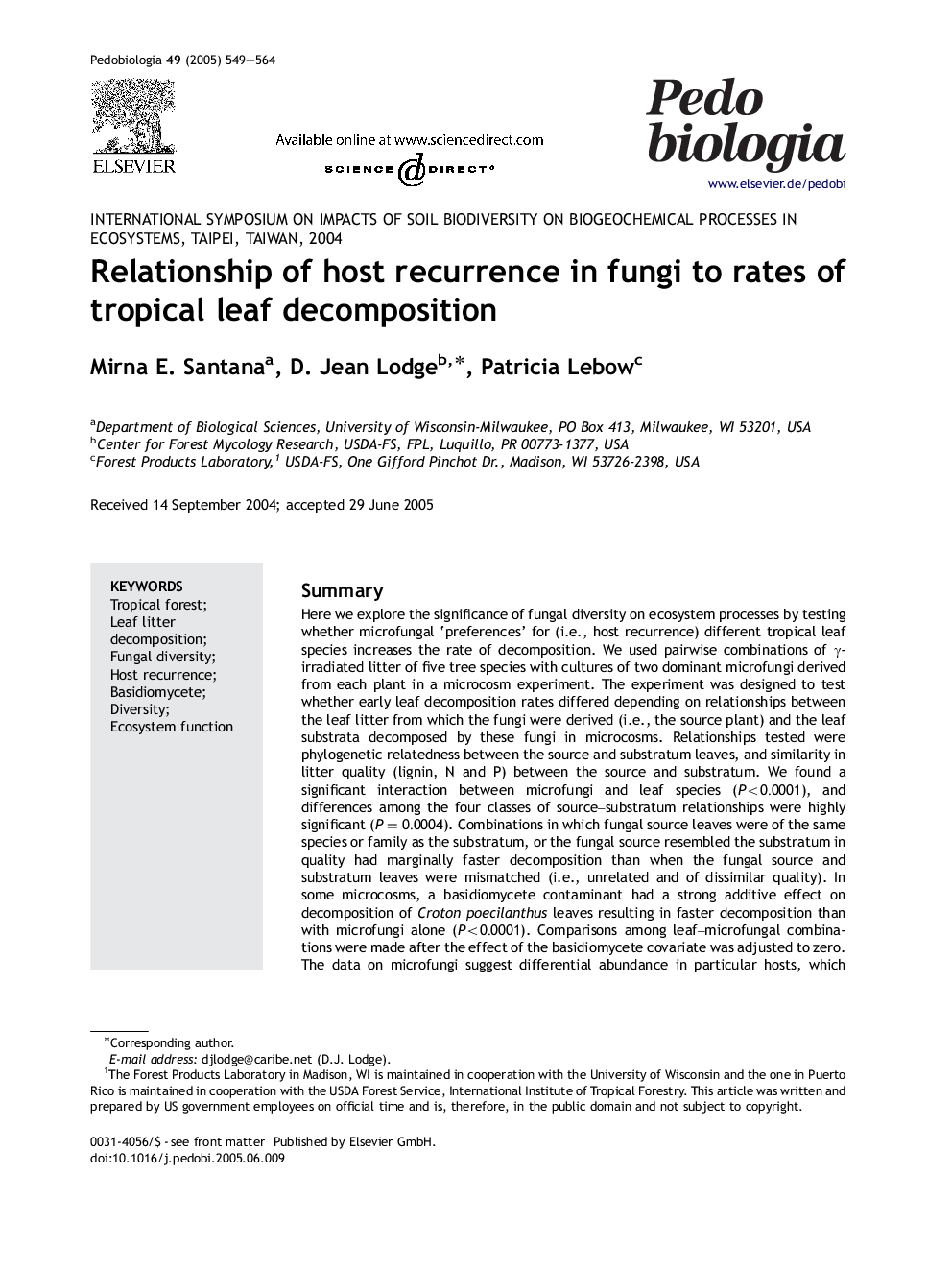| Article ID | Journal | Published Year | Pages | File Type |
|---|---|---|---|---|
| 10878674 | Pedobiologia | 2005 | 16 Pages |
Abstract
Here we explore the significance of fungal diversity on ecosystem processes by testing whether microfungal 'preferences' for (i.e., host recurrence) different tropical leaf species increases the rate of decomposition. We used pairwise combinations of γ-irradiated litter of five tree species with cultures of two dominant microfungi derived from each plant in a microcosm experiment. The experiment was designed to test whether early leaf decomposition rates differed depending on relationships between the leaf litter from which the fungi were derived (i.e., the source plant) and the leaf substrata decomposed by these fungi in microcosms. Relationships tested were phylogenetic relatedness between the source and substratum leaves, and similarity in litter quality (lignin, N and P) between the source and substratum. We found a significant interaction between microfungi and leaf species (P<0.0001), and differences among the four classes of source-substratum relationships were highly significant (P=0.0004). Combinations in which fungal source leaves were of the same species or family as the substratum, or the fungal source resembled the substratum in quality had marginally faster decomposition than when the fungal source and substratum leaves were mismatched (i.e., unrelated and of dissimilar quality). In some microcosms, a basidiomycete contaminant had a strong additive effect on decomposition of Croton poecilanthus leaves resulting in faster decomposition than with microfungi alone (P<0.0001). Comparisons among leaf-microfungal combinations were made after the effect of the basidiomycete covariate was adjusted to zero. The data on microfungi suggest differential abundance in particular hosts, which contributes to species diversity of decomposer fungi in tropical forests, affects rates of decomposition.
Keywords
Related Topics
Life Sciences
Agricultural and Biological Sciences
Animal Science and Zoology
Authors
Mirna E. Santana, D. Jean Lodge, Patricia Lebow,
